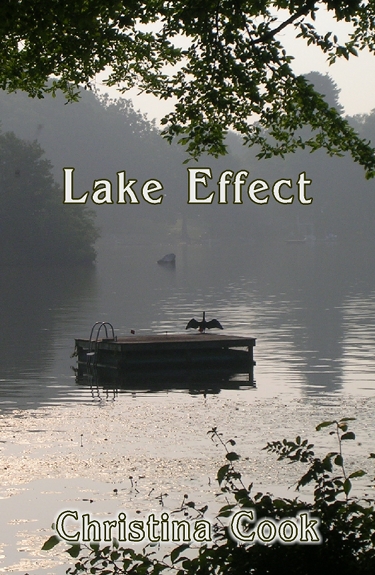
Lake Effect is available locally from the Norwich Bookstore . It is also available directly from Finishing Line Press , or at Amazon.com.
Praise for Lake Effect
From Roger Weingarten:
Cook's multifaceted gift manifests its quiet aria in this beautifully imagined, brilliantly wrought homage. Here, a barefoot human bond sinks its toes into lake sand, love, loss, black lily buds; and, consequently, death—that "most foreign land"—reveals an unforgettable intimacy reflected off the surface of a second glass of red. Bravissima.
From William Olsen:
That Whatever or Whomever is beyond our grasp does exist--that is the strange reassurance and buoyancy--we float to be taken somewhere--voiced so exquisitely, again and again in Christina Cook's Lake Effect. It is a book of sustained address and quickened association, and it practices its craft not that it be mastered but that it be tested, that it be riddled with almost unaccountably beautiful vocalizations of a world that requires our singing. Loss dealt with freely and frankly, until the griever can paradoxically see in the other "the immanence of my departure" and be restored to continuities of daily-ness, family, place--"charmed by life." The reader, too, will be returned to life by these generous poems.
From Clare Rossini:
Christina Cook's Lake Effect maps the poet's journey through the profound grief of a mother's terminal illness and death. But that précis hardly does justice to this elegant first book. Like Asian scroll paintings, Cook's poems can distill a complex emotion in the brush-stroke of a single image: scattered in a lake, the mother's ashes "soften, like last year's peaches, into water the color of koi"; later, in another night piece, the poet hears "filament-thin cicadas sing/Blue Monk/to the bass voice of the bullfrog." Such images resonate in poems that seem otherwise distilled, beautifully spare; there's nothing indulgent here, no sentimentality or hype, just the clarity achieved when a poet has allowed herself to be instructed by all manners of silence. So in the end, when the book arrives at a joy founded in the vitality of nature and human connection, we are utterly convincednot just by the meticulous craftmanship of these poems, nor their fierce intelligence, but by how they sing of Eros, the life force which, as the ancient Greeks knew, thrums throughout creation.